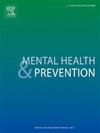The effects of the expanded child tax credit on mental health of home renters and homeowners
Abstract
The American Rescue Plan Act of 2021 expanded the Child Tax Credits (CTC) by increasing the maximum amount of credit, making the credit fully refundable, and providing advanced monthly credit payments from July to December 2021. We evaluated the impact of the expanded CTC in 2021 on mental health of home renters compared to homeowners within the income range eligible for maximum credit. The study included nationally representative data from the 2019–2022 Behavioral Risk Factor Surveillance System. Outcomes were the number of days not in good mental health in the past 30 days, and an indicator for having 14 or more such days. The study employed regression models examining mental health changes of adults before and after the CTC expansion by number of children (which determines the overall CTC payment). We find that the CTC expansion was associated with improved mental health among renters. A $100 monthly CTC payment was associated with 0.096 fewer days not in good mental health among renters in the past 30, with associations concentrated in the last quarter of 2021. There was little evidence of associations of CTC payments with mental health among homeowners. The findings suggest that cash support programs such as the CTC are associated with improved mental health of adults in low-income renting households.

 求助内容:
求助内容: 应助结果提醒方式:
应助结果提醒方式:


